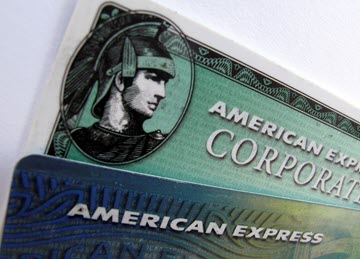American Express says no current plans to enter Sudanese market
April 21, 2020 (NEW YORK) – The New York-based American Express Co. (AMEX) has no current plans to enter the Sudanese market despite recent moves by several U.S. companies to do business in the East African nation.
 Over the last year a handful of American companies such as Oracle, Kentucky Fried Chicken (KFC) & Visa Inc. decided to venture into Sudan which used to be under comprehensive U.S. economic sanctions.
Over the last year a handful of American companies such as Oracle, Kentucky Fried Chicken (KFC) & Visa Inc. decided to venture into Sudan which used to be under comprehensive U.S. economic sanctions.
The San Francisco-based Visa Inc, the world’s largest credit card network, announced in March that it is “pleased to be building new partnerships that will bring the benefit of Visa’s world-class payment technology to help support financial inclusion and economic growth in Sudan”.
Many American companies such as package delivery company FedEx still maintain to their customers that they do not offer service to Sudan because of the economic embargo even though it was officially lifted in October 2017.
Sudan remains on the U.S. list of states that sponsor terrorism which Khartoum says is putting off foreign investors. The designation does not bar US companies from engaging in trade with Sudan but imposes restrictions on Washington’s support for debt relief & bilateral aid as well as the sale of American defence products.
AMEX, one of the world’s largest credit card issuer, said that sanctions are not the reason why it has not sought to explore opportunities in Sudan.
“While Sudan is no longer subject to an OFAC comprehensive sanctions regime, there are other material compliance risk factors: business in Sudan,” Amex spokesperson Marina Hoffmann Norville said in an emailed response to questions from Sudan Tribune.
“While I cannot speak to future plans American Express may make, I can tell you that at this time we are not in the process of entering the Sudanese market,” she added.
U.S. officials insist that Sudan has several economic & reputational hurdles it needs to overcome in order to attract foreign capital.
“The state sponsor of terrorism listing is not preventing Sudan from participating in international finance. There are a number of other criteria; for instance, Sudan has considerable arrears to international financial institutions which prevent those international financial institutions from making additional loans or grants to Sudan, so that’s one of the problems. ….. So the issue is, number one, reputational; number two, it is the arrears that Sudan has built up that will need to be negotiated in the future,” U.S. Assistant Secretary of State for African Affairs Tibor Nagy told reporters earlier this year.
Last month the U.S. Assistant Secretary for Terrorist Financing at the U.S. Department of Treasury Marshall Billingslea travelled to Khartoum for meetings with top Sudanese officials for discussions on combating money laundering and terrorist financing.
(ST)
